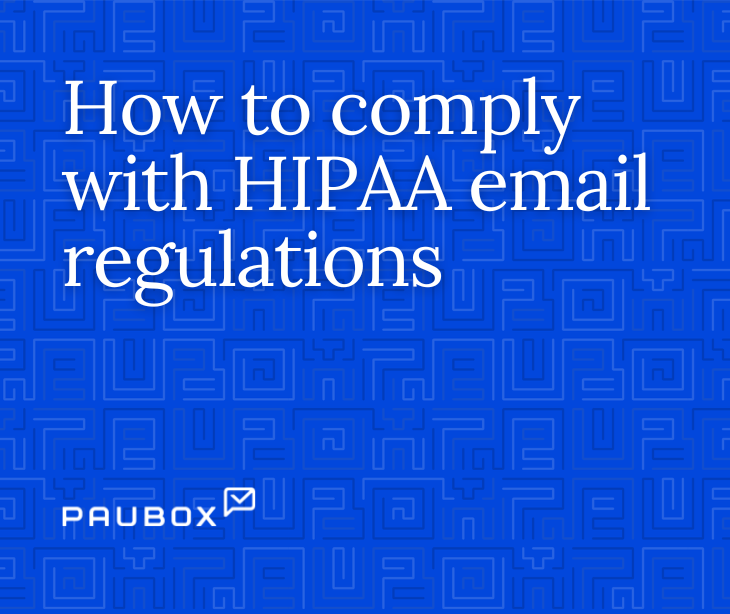
HIPAA compliant bulk email communication involves sending mass emails containing protected health information (PHI) while adhering to HIPAA's privacy and security standards. To be HIPAA compliant, senders must encrypt emails, obtain patient authorization, protect recipient identities, and implement security measures and access controls to ensure the confidentiality and security of sensitive patient information.
HIPAA compliance and bulk emails
Bulk emails can be helpful when updating patients about new procedures, clinic and operational updates, and health education. Bulk emails, however, are only useful to patients if they are opened, and often, generic emails are deleted or left unread. By including PHI, emails can provide more targeted information relevant to patients, improving the likelihood of the recipient viewing the email and taking action.
To send PHI, healthcare organizations must use a secure email service that protects patients via data encryption, access controls, and more.
Related: Top 7 HIPAA Compliant Email Marketing Services
Common sources of non-compliance in bulk email communication
More than 50% of healthcare professionals violate HIPAA requirements, leading to costly fines, loss of reputation, and breaches.
- Using non-compliant email services: Non-compliant email services may lack essential security features such as encryption, making PHI vulnerable to unauthorized access.
- Lack of encryption: Sending emails without proper encryption can expose sensitive patient information to hackers and unauthorized third parties. Encryption ensures data is unreadable to anyone other than the intended recipient.
- Improper Use of CC/BCC: Failing to use Blind Carbon Copy (BCC) or other identity anonymization can lead to accidental disclosure of patient email addresses and information, violating HIPAA rules.
Related: Common mistakes to avoid in HIPAA compliant email marketing
Best practices for HIPAA compliant bulk email communication
- Using secure email service providers: Select a HIPAA compliant email service provider with robust security features, such as encryption and secure data storage. Ensure they are willing to sign a BAA, a legal requirement under HIPAA.
- Encryption: Always encrypt emails that contain PHI to ensure that even if the email is intercepted, it’s still secure and unreadable to unauthorized individuals.
- Authorization: Obtain written patient authorization before including their PHI in bulk emails, a requirement under HIPAA.
- Content of emails: Limit the amount of PHI included in your emails. Use general language whenever possible to reduce the risk of exposing sensitive information.
- BCC feature: Use the BCC feature to protect patient identities and email addresses.
- Security measures: Implement strong password policies and access controls to protect email accounts. Ensure that only authorized personnel have access to sensitive information.
- Opt-out mechanism: Provide an easy way for recipients to opt out of receiving future emails.
- Documentation: Keep detailed records of all communications, including authorizations and the content sent. The documentation can demonstrate compliance in the event of an audit.
- Training and policies: Regularly train your staff on HIPAA requirements for email communication. Develop and enforce policies to ensure consistent adherence to these standards.
- Monitoring and auditing: Regularly monitor and audit your email communications to ensure compliance with HIPAA regulations.
FAQs
Can I send appointment reminders via bulk email?
Yes, but ensure you have patient authorization and use a HIPAA compliant email service provider.
What happens if I don't encrypt emails containing PHI?
Failure to encrypt emails can result in unauthorized access and potential HIPAA violations.
Do I need a BAA with my email service provider?
Yes, a BAA is required to ensure the provider complies with HIPAA regulations.
Related: The consequences of not having a BAA with an email service provider
Subscribe to Paubox Weekly
Every Friday we'll bring you the most important news from Paubox. Our aim is to make you smarter, faster.



